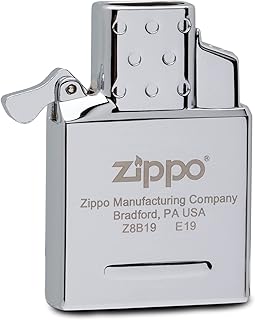Zippo Lighters: A Timeless Classic
The Zippo lighter, with its distinctive click and enduring flame, has become more than just a tool for lighting cigarettes. It's a cultural icon, a symbol of ruggedness, and a testament to American ingenuity.
A Brief History:
The Zippo lighter's story began in 1932, when George G. Blaisdell, inspired by an Austrian lighter, decided to create his own. He envisioned a lighter that was both windproof and reliable. The first Zippo, with its signature rectangular shape and distinctive "click," was launched in 1933.
Enduring Appeal:
The Zippo's enduring appeal lies in its:
* Reliability: Known for its robust construction and ability to withstand harsh conditions, the Zippo is a trusted companion for adventurers and everyday users alike.
* Durability: Zippo lighters are built to last. They are easily refillable and can be repaired, ensuring years of faithful service.
* Collectibility: With its diverse range of designs, finishes, and limited editions, the Zippo has become a prized collectible.
* Nostalgia: The familiar click and the scent of lighter fluid evoke fond memories for many.
Beyond Functionality:
The Zippo has transcended its functional purpose. It has become a symbol of:
* American Identity: The Zippo is often associated with American culture and history, particularly with soldiers and veterans.
* Individuality: Collectors personalize their lighters with engravings, custom designs, and unique finishes, expressing their individual style.
* Adventure: The Zippo is a constant companion for explorers and adventurers, serving as a reminder of their journeys and experiences.
The Legacy Continues:
Today, the Zippo lighter remains a popular and iconic product. Its legacy continues to grow, with new designs and innovations catering to a diverse range of consumers.
In Conclusion:
The Zippo lighter is more than just a tool. It's a testament to American ingenuity, a symbol of enduring quality, and a timeless classic that continues to ignite imaginations and inspire a sense of adventure. It's a reminder that simple, well-crafted products can stand the test of time and become cultural icons.


